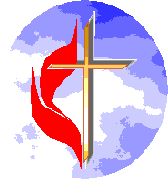
 A Missionary Life:
A Missionary Life:
Rev. J. Wesley Day
China, Malaysia, Indonesia
Chapter 5. The Communists
Then came the Communists, around New Year, 1950. Soldiers were polite, helping old ladies across the street, paying for whatever they took. University students believed that liberation indeed had come to their country. Morning, noon and night, people, particularly the students, sang the praises of Mao Tze Dung. It seemed like an old-fashioned revival. The faculty mid-week prayer meeting, which I attended, seemed very quiet by comparison.
A committee of students asked me if they could borrow my public address system for a series of meetings. I agreed provided I operate it. So I sat behind the stage turning dials while the students revised the curriculum, gave popular teachers subjects to teach, unpopular teachers none.
A special section of the police department was set up for foreigners, each of whom was interviewed. I was asked what I was in charge of. "Nothing, I came to preach." My interviewer finally put it down. I asked permission to visit my churches in the district--outside of Chengdu. "It's not safe now for you to go outside Chengdu. We'll let you know when it's safe." Thereafter every so often I asked for permission to go to my district. It was never "safe".
I preached in Chengdu as late as August, 1950, but not after that. One day I went to the city church to call on my friend the preacher. He met me at the gate-house. "Don't call today" he said, agitated. "We got permission to bring preachers in from the country. We promised the authorities no foreigners would be present."
No objection was ever raised to our having two radios, so we had good news coverage. We heard, however, that one Chinese, in the secrecy of his family, listened to the Voice of America. A man in uniform came to the house, told him he must not listen to the Voice of America. In great secrecy he continued to listen. Men came and took him away.
In August the news was bad between China and the U.S. We thought we should leave. We quietly told our friends, who said, "Don't go now. There are two parties in Beijing. One wants to be friends of the U.S., the other doesn't. Stay."
In November, 1950, China sent volunteers into the Korean War. November 14 we applied to leave. My teacher wrote the application. "Why do you want to go?" "I can't do any work, so I want to leave." "I can't put that in the application. Are your parents living?" He wrote in beautiful Chinese in the application, "My Father is aged and there is no one to hold up his arms." The application was received with a smile by the police.
After three weeks friends told us quietly --and urgently, "Relations are bad between our
countries. Go --- quickly!" But we had no permit to go anywhere.
Finally the notice came. We could advertise our intended departure in the newspaper. (This meant if anybody had anything against us, they could report it to the government and we could not go till all was cleared up.)
I had to get someone to guarantee my conduct outside of China. (I was told that if I said or did anything outside of China of which the Chinese government did not approve, my sponsor would be punished.) At the time we left no Chinese would dare to sponsor an American foreigner, so the government allowed the Canadian Press to be our sponsor. Sometime after we left the government took over the Canadian Press, so no Chinese I know is now responsible for my behavior in America.
We left Chengdu with several others, January 4, 1951. Hours after we left, all foreign homes were searched and no one was allowed to leave for months. We spent time in Chungking waiting for a boat down the Yangtse. February 22 we arrived in Hong Kong. How beautiful was the Union Jack!
We weren't home yet. It took six weeks to get a ship out of Hong Kong. Also, we had promised to visit our aging missionaries in Sweden, and we kept our promise. June 4, 1951 our ship the "Gripsholm" passed the Statue of Liberty, and we were soon in the arms of our family. Doxology!
<--- Post-War China | Malaya --->
Autobiography
The Call |
Kalgan |
War Years |
Post-War China|
The Communists |
Malaya |
Palembang|
Bandar Lampung |
Medan |
Retirement Travels
Home |
Chronology |
Sitemap |
Guestbook.
Communist China
Under the Communists in Chengtu |
Chungking
"A Missionary Life" © 1998-2005, J. Wesley Day, Jackson Day, Vivia Tatum. All Rights Reserved. Jackson Day, Webmaster
Updated July 8, 2005

